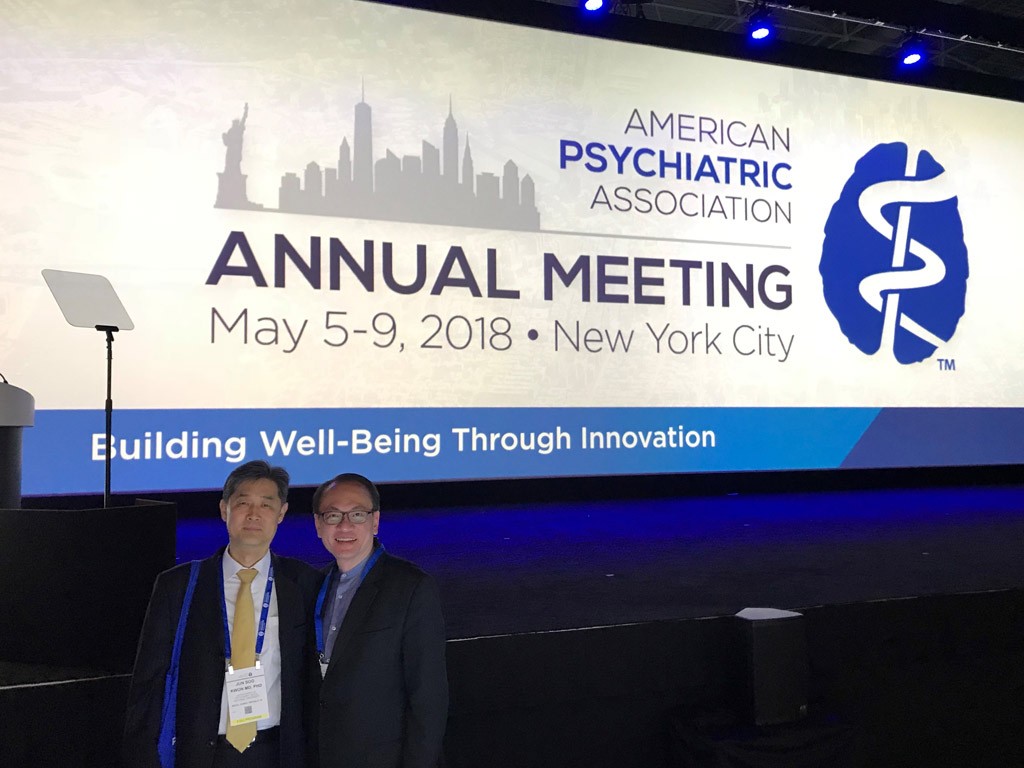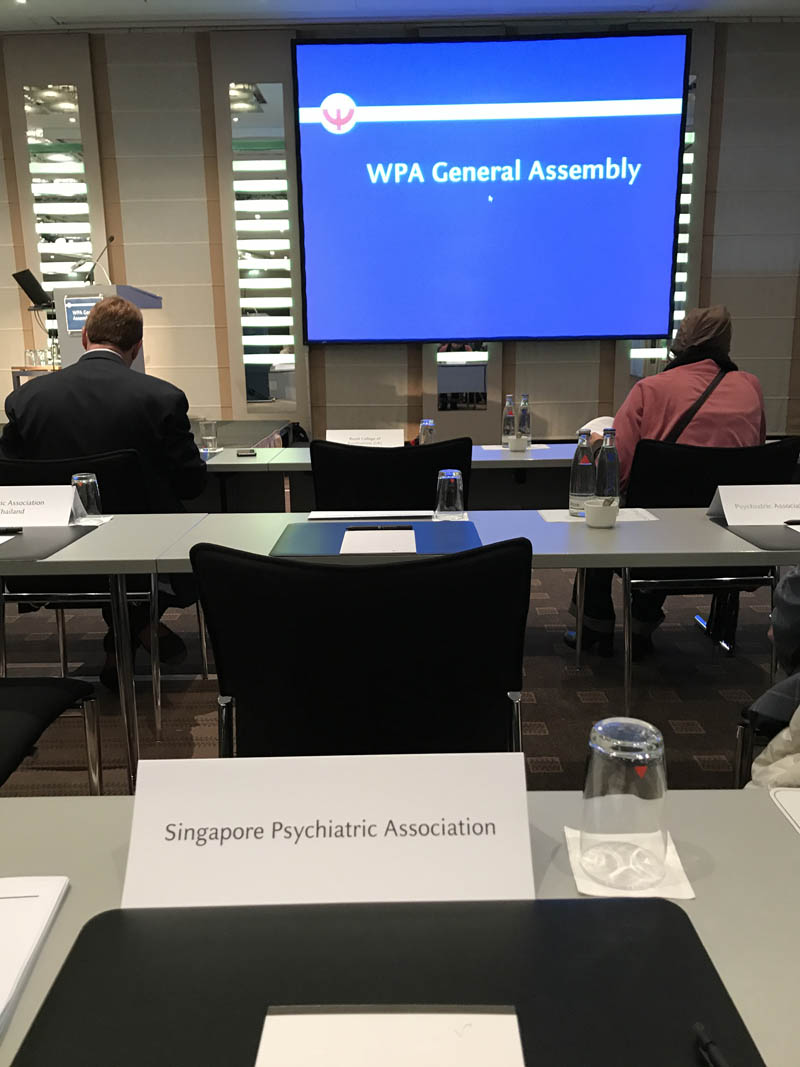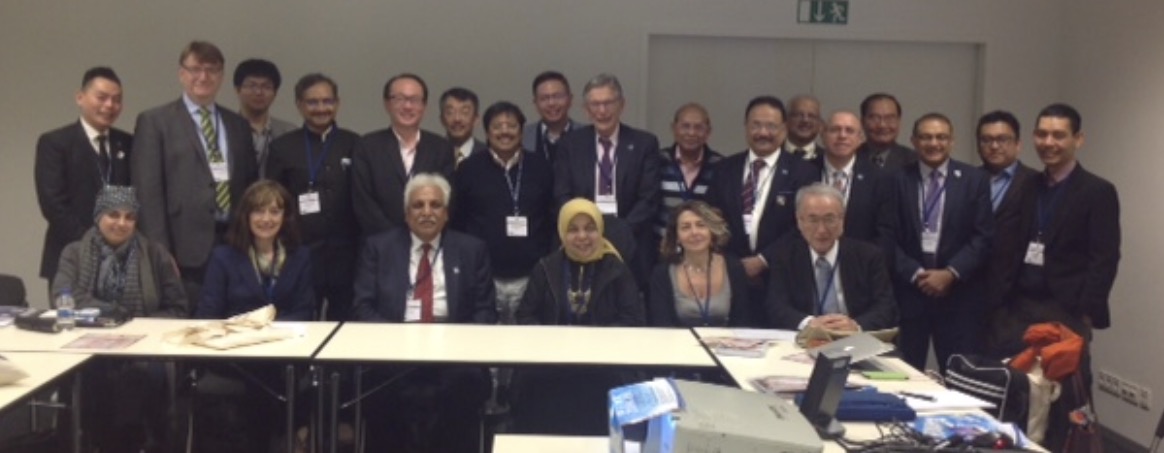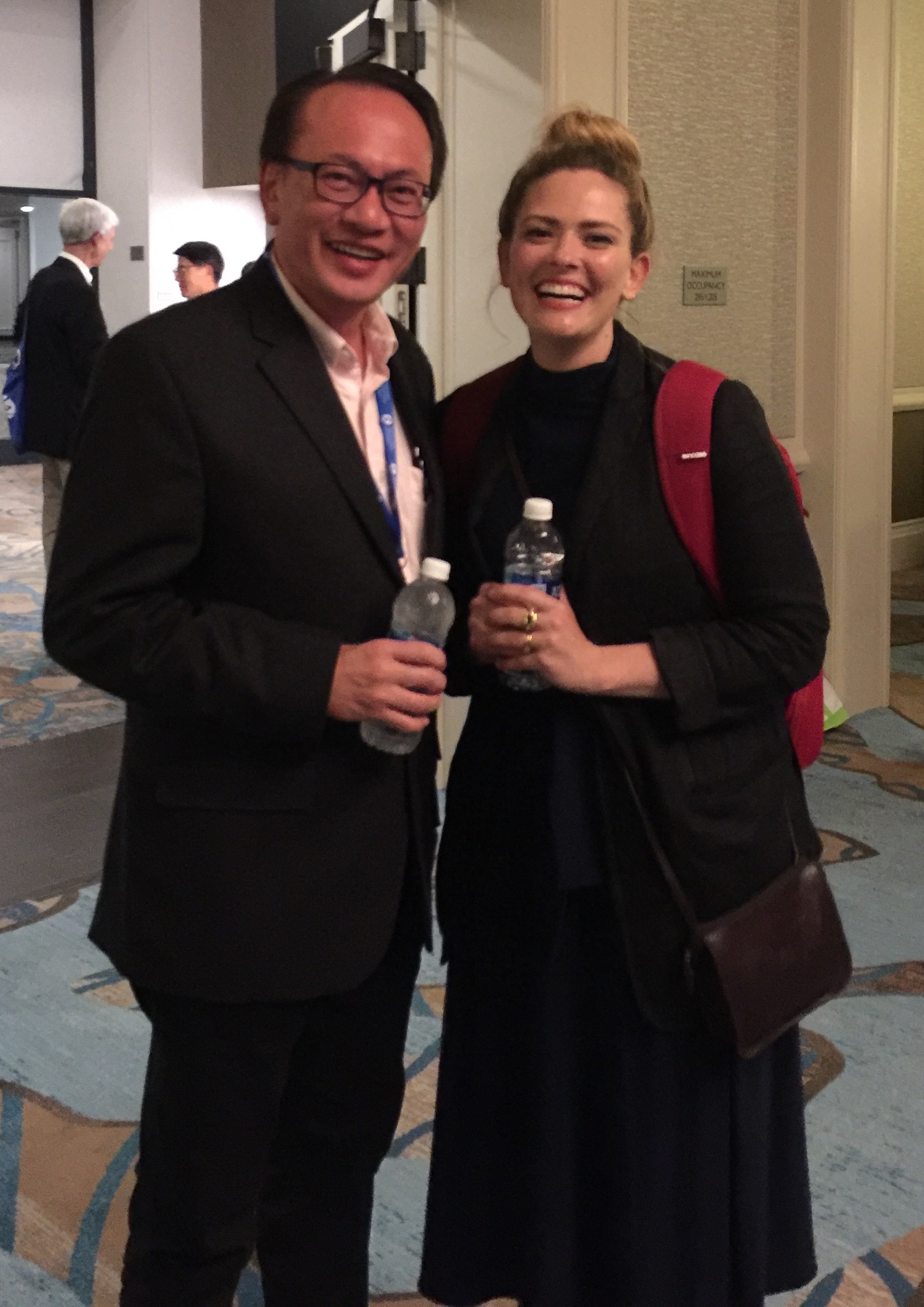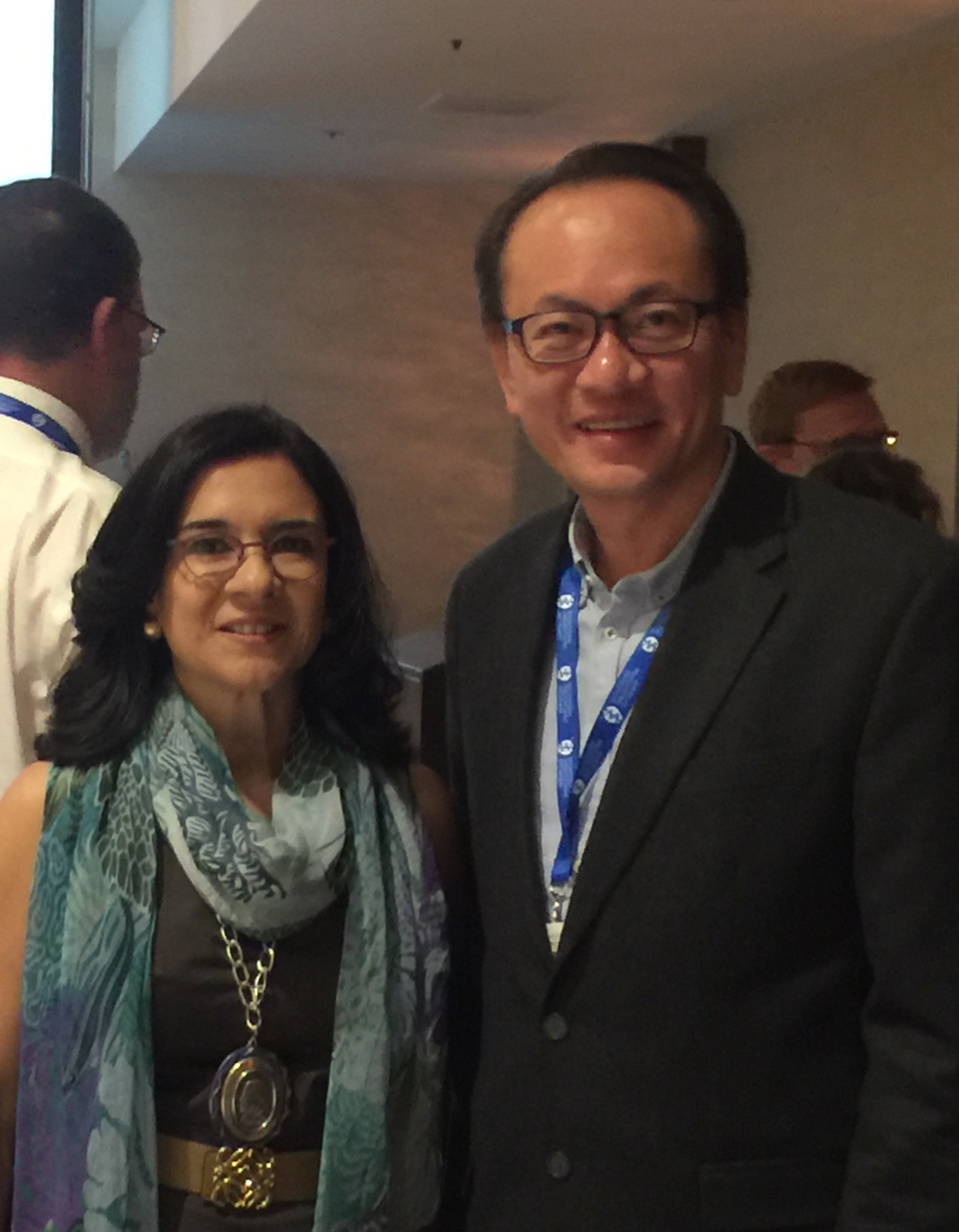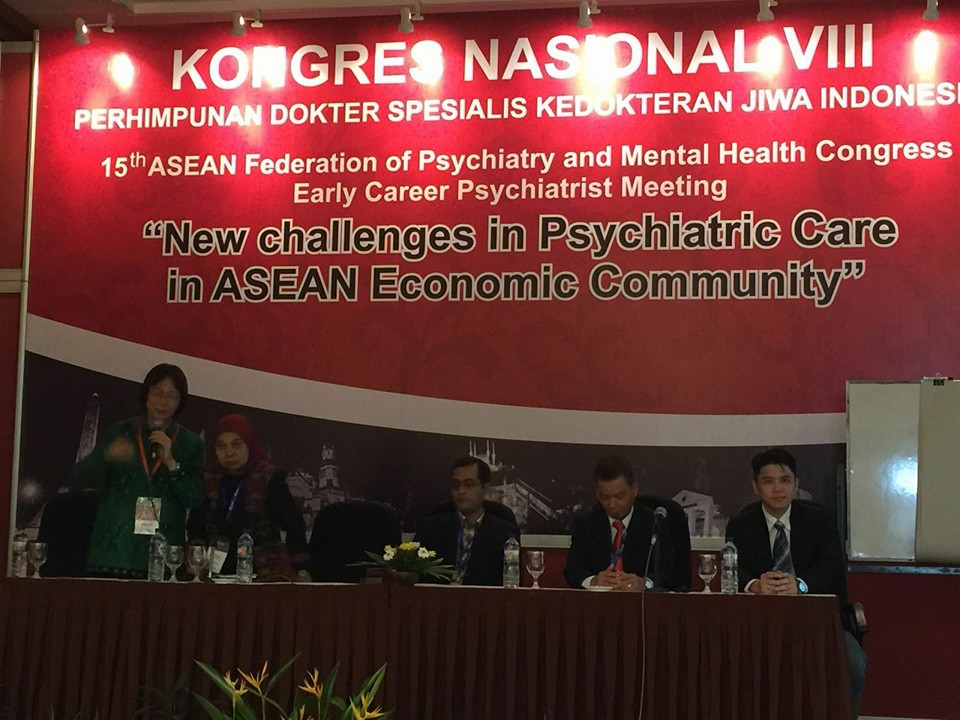The American Psychiatric Association Annual Meeting is one of the largest psychiatric meeting in the world whereby attendees benefit not only from the scientific programs but also the global networking.
This year, the meeting was held in New York from 5 to 9 May 2018 and the theme of the meeting is ‘Building Well-being through innovation”. The Special Lecture this year was by Lt Gen Mark Hertling (Ret) who is now leading programmes for Global Partnering Leadership Development and Health Performance Strategies at the innovative Florida Hospital in Florida. His talk was mainly on the today’s and tomorrow’s attributes and competencies required of a good leader. He emphasized the importance of a good leader to know oneself, exhibit strong values, understand the environment, find ways to build trust, understand other’s motivations and how to influence but continue to remain humble, serve others and their profession.
I attended a number of sessions related to forensic psychiatry. One of the sessions was on the psychiatric impact of insanity acquittees. Acquittees are usually people with severe psychiatric disabilities and the insanity acquittal is premised on lack of moral blameworthiness and punishment is illegitimate in insanity acquittal. After the initial stabilization, symptom reduction and functional improvement, these individuals would need to acknowledge and cope with their illness and knowledge of their past violence. Multiple court hearings and repeated media attention would increase the stigma directed toward them and stimulate negative public affect against these patients. At the same time, there is a need to continue to provide care for the victims who may require professional psychiatric care and community and societal supports. The other session was on violence and mental illness which highlighted that although 3% of violent crimes are committed by people with mental illness (PMIs) but PMIs are 23 times more likely to be victims than individuals without mental illness. Beyond the mental illness, other factors that come into play in aggression include: lack of social support, substance abuse, poor access to treatment and medical conditions.
I also attended a number of pharmacological update sessions such as the role of endogenous opioid system in mood disorders, the treatment of tardive dyskinesia and the medical indications of cannabinoids e.g. for chronic pain, neuropathic pain, pediatric seizure disorders and chemotherapy-induced nausea and vomiting. At present, evidence appears to illustrate that cannabis use is associated with increase in depression, anxiety, cognitive changes and abuse/dependence.
Some of the other sessions which I attended included those related to improvement in access to psychiatric care (‘queuing theory’ whereby splitting of responsibilities and duties result in better workload distribution) and the community services and bed situations in US, Europe and Australia, While recognizing non-bedded services can reduce the need for beds but the goal should be to improve health and not merely to reduce beds. Different approaches can be adopted although the observed outcomes approach looking into out of areas placements, boarding in emergency rooms, involuntary admission, occupancy rates in psychiatric units, ALOS, readmission rates and homelessness should all be taken into consideration.
I also attended a number of sessions related to terrorism and radicalization. Most of these terrorist attacks were committed by individuals with no mental illness. Some of the acts were secondary to anger against government policies; committed by individuals with extreme ideology and in some poor countries, an escape from poverty and a promise of heaven. To them, violence is the only option to eliminate injustice. As radicalized groups are very diverse, agencies should adopt a person-oriented and integrated approach in the rehabilitation. Mental health professionals, policy makers, police and other stakeholders each have specific competencies and complementary roles.
Lastly, I would like to thank APA Organising Committee for inviting the presidents of international psychiatric associations and societies to the APA annual meeting. This year is especially memorable to me as it would be the last year I attended as the President of Singapore Psychiatric Association (SPA).

Photos: With some Singaporean psychiatrists at APA NYC (above) and with Prof Jun Soo Kwon, President of the Korean Neuropsychiatric Association (below)
